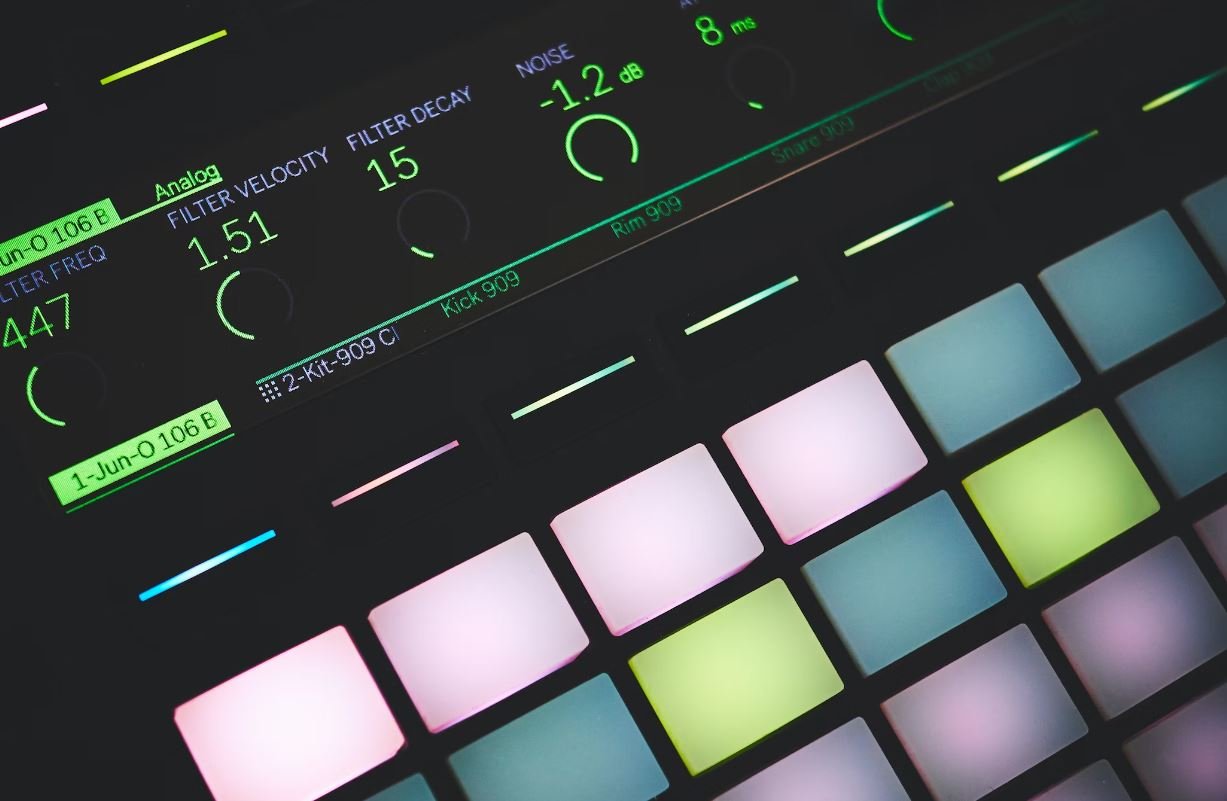AI Tools Similar to ChatGPT
Artificial Intelligence (AI) has revolutionized various industries, and one of its most exciting applications is chatbots. These AI-powered tools, such as OpenAI’s ChatGPT, have the ability to generate human-like responses and engage in meaningful conversations with users. However, ChatGPT is not the only tool of its kind. Several similar AI tools exist that offer various functionalities and cater to different needs. In this article, we will explore some AI tools similar to ChatGPT.
Key Takeaways
- AI tools like ChatGPT provide human-like conversations.
- There are alternative tools that offer diverse functionalities.
- Some tools integrate with specific platforms for seamless usage.
1. Dialogflow
Dialogflow, powered by Google, is a conversational AI platform that enables developers to design and deploy chatbots across multiple channels, such as websites, mobile apps, and messaging platforms. It offers natural language understanding capabilities and supports integration with popular platforms like Facebook Messenger, Slack, and more. *With Dialogflow, developers can build dynamic and context-aware chatbots easily.
2. Watson Assistant
Watson Assistant is an AI-powered chatbot platform developed by IBM. It allows businesses to create virtual assistants that understand and respond to user queries accurately. Watson Assistant offers a range of features, including natural language processing, sentiment analysis, and integration with various systems. *Organizations can leverage Watson Assistant to deliver personalized and efficient customer support.
3. Botpress
Botpress is an open-source chatbot development platform that offers both visual and code-based interfaces for building powerful conversational AI. It provides a modular structure, allowing developers to extend its functionality with custom modules and integrations. Additionally, Botpress supports multi-channel deployment and offers analytics to gain insights on chatbot performance. *With Botpress, developers enjoy flexibility and control over the chatbot development process.
Comparison of AI Tools
| Tool | Supported Platforms | Key Features |
|---|---|---|
| Dialogflow | Web, mobile apps, messaging platforms | Natural language understanding, integration with popular platforms |
| Watson Assistant | Web, mobile apps, messaging platforms, IoT devices | Natural language processing, sentiment analysis, system integration |
| Botpress | Web, mobile apps, messaging platforms | Modular structure, custom module development, multi-channel deployment |
4. Rasa
Rasa is an open-source framework for building AI-powered chatbots. It allows developers to create highly customizable conversational AI models with control over both the data and the AI pipeline. Rasa’s machine learning and natural language understanding capabilities help in developing intelligent and context-aware chatbots. *Developers can leverage Rasa to build chatbots tailored to specific business needs.
5. Amazon Lex
Amazon Lex is a service by Amazon Web Services (AWS) that enables developers to build conversational interfaces for applications. It provides pre-built integration with various AWS services, such as AWS Lambda, making it easy to deploy chatbots. Amazon Lex supports automatic speech recognition (ASR) and natural language understanding (NLU), allowing developers to create voice and text-based chatbots. *With Amazon Lex, developers can harness the power of AWS infrastructure for scalable chatbot deployments.
Comparison of Frameworks
| Framework | Customizability | Natural Language Understanding Capabilities |
|---|---|---|
| Rasa | Highly customizable | Powerful NLU capabilities |
| Amazon Lex | Customizable | ASR and NLU built-in |
Conclusion
In conclusion, AI tools similar to ChatGPT offer a wide range of functionalities and cater to diverse needs. Whether you require seamless integration with popular platforms, modular development capabilities, high customizability, or support for voice-based interactions, there is an AI tool that fits your requirements. So, explore these alternatives and choose the one that best suits your chatbot development needs.

Common Misconceptions
1. AI Tools are perfect and infallible
One common misconception about AI tools similar to ChatGPT is that they are perfect and infallible. While AI has made impressive advancements, it is important to remember that these tools are not without limitations and flaws.
- AI tools can still make mistakes or produce incorrect answers
- They can sometimes be biased or perpetuate existing biases
- AI tools require continuous training and improvement to enhance their accuracy
2. AI Tools can replace human intelligence entirely
Another misconception is that AI tools can completely replace human intelligence. While they can automate certain tasks and provide valuable assistance, they are not capable of replicating the complexity and creativity of human thinking.
- Human intelligence involves emotional intelligence and empathy that AI lacks
- Critical thinking and judgment might be beyond the capabilities of current AI tools
- AI tools are designed to assist and augment human intelligence, rather than replace it
3. AI Tools can understand and interpret all types of information
Many people assume that AI tools can fully understand and interpret all types of information. However, AI tools have their limitations in comprehending context, nuance, and subtlety, which can lead to misinterpretation of certain information.
- Ambiguity and sarcasm can be challenging for AI tools to interpret correctly
- AI tools may struggle with cultural nuances and language idioms
- Complex concepts and abstract ideas might be difficult for AI tools to grasp accurately
4. AI Tools possess human-like consciousness
One misconception is that AI tools possess human-like consciousness. Despite their impressive capabilities, AI tools are still purely algorithmic and lack subjective consciousness or self-awareness.
- AI tools are programmed and operate based on deterministic algorithms
- They do not possess emotions, intentions, or subjective experiences
- AI tools cannot engage in self-reflection or self-awareness
5. AI Tools will replace human jobs on a large scale
Although AI tools have the potential to automate certain tasks, the fear that they will replace human jobs on a large scale is not entirely accurate. While AI can augment and transform job roles, it also creates new opportunities and demands for human expertise.
- AI tools often require human oversight and intervention for complex decision-making
- Certain jobs relying on human creativity and personal interaction are less likely to be fully automated
- New jobs and roles will emerge in tandem with technological advancements

Top AI Tools Similar to ChatGPT
As artificial intelligence (AI) continues to advance, AI tools that mimic human conversation are becoming increasingly sophisticated and popular. These tools, known as AI chatbots, are designed to engage in interactive and dynamic discussions with users. Here are ten remarkable AI tools similar to ChatGPT that showcase the capabilities of conversational AI.
1. Mitsuku
Mitsuku is an AI chatbot developed by Steve Worswick that has won the prestigious Loebner Prize Turing Test multiple times. With its natural language processing capabilities, Mitsuku can engage in deep and meaningful conversations, providing both information and entertainment value.
2. Cleverbot
Cleverbot is an AI chatbot that uses machine learning algorithms to simulate human conversation. By analyzing vast amounts of dialogue data from various sources, Cleverbot can generate contextually relevant responses to user queries, making the interaction feel more lifelike.
3. Xiaoice
Xiaoice, developed by Microsoft, is an AI chatbot primarily used in Chinese-speaking regions. It employs text analysis, emotion detection, and image recognition to enhance user engagement. Xiaoice can hold extended conversations and even tells stories, blurring the line between human and machine interaction.
4. Replika
Replika is an AI chatbot focused on promoting mental well-being and personal growth. It leverages neural networks to learn from user input and offer empathetic responses. Replika also utilizes conversation analysis and sentiment detection to provide insights and support to its users.
5. Mitsuku24
Mitsuku24 is an advanced version of Mitsuku, capable of providing round-the-clock conversational support. With enhanced learning algorithms and increased knowledge base, Mitsuku24 can handle a wide range of topics and engage in longer and more complex discussions.
6. Botpress
Botpress, an open-source AI chatbot framework, allows developers to create their own AI chatbots with ease. Its modular architecture and built-in NLU (Natural Language Understanding) make it a powerful tool for designing chatbots that can understand user intent and respond intelligently.
7. Chatbot.com
Chatbot.com is a platform that offers businesses customizable chatbot solutions. With its comprehensive AI training and integration capabilities, Chatbot.com allows companies to build chatbots that can handle customer support, lead generation, and much more, providing a personalized and efficient user experience.
8. Watson Assistant
Watson Assistant, developed by IBM, is an enterprise-grade AI chatbot that combines machine learning and natural language processing to deliver personalized assistance. Its advanced features, including integration with business systems and multiple language support, make it a powerful tool for various industries.
9. Pandorabots
Pandorabots is a chatbot development platform that enables the creation of AI chatbots using the AIML (Artificial Intelligence Markup Language) standard. With its extensive natural language understanding capabilities and flexible conversational flow design, Pandorabots allows developers to build complex and context-aware chatbots.
10. Dialogflow
Dialogflow, powered by Google Cloud, offers a versatile platform for creating AI chatbots integrated with various communication channels. With its easy-to-use tools, machine learning capabilities, and support for multiple languages, Dialogflow enables developers to build conversational agents that provide seamless user experiences.
In this era of rapid technological advancement, AI chatbots like ChatGPT and its counterparts are revolutionizing the way we interact with machines. They empower businesses, assist with mental well-being, and enhance user experiences. As AI continues to evolve, we can expect even more exciting and intelligent conversational AI tools in the future.
Frequently Asked Questions
What are some AI tools similar to ChatGPT?
What is ChatGPT and why is it popular?
ChatGPT is an AI-based language model developed by OpenAI. It is popular because it can generate human-like responses and engage in interactive conversations.
Which AI tools are similar to ChatGPT in terms of conversational abilities?
Some AI tools similar to ChatGPT in terms of conversational abilities are: Mitsuku, Cleverbot, Replika, and Xiaoice.
Are there any AI tools that provide similar functionality for specific industries or domains?
Yes, there are AI tools tailored for specific industries or domains. For example, in customer service, tools like Ada, Intercom, and LivePerson provide similar functionality as ChatGPT but with a focus on customer interactions.
Are there any AI tools similar to ChatGPT that offer an open-source alternative?
Yes, tools like DialoGPT and GPT-3 Sandbox offer open-source alternatives to ChatGPT. They allow developers to customize and integrate the models into their own applications.
Can AI tools similar to ChatGPT be used for language translation?
While ChatGPT and similar tools are primarily designed for conversational interactions, they can also be used for language translation to a certain extent. However, dedicated translation tools like Google Translate are more suitable for accurate and comprehensive translation tasks.
Do AI tools similar to ChatGPT require training on specific datasets?
Yes, AI tools similar to ChatGPT usually require training on large datasets to learn language patterns and generate relevant responses. The models are pre-trained on vast amounts of text data and fine-tuned for specific tasks or domains.
Are AI tools similar to ChatGPT capable of understanding context and maintaining coherent conversations?
AI tools similar to ChatGPT have varying levels of context understanding and coherence in conversations. While they can generate contextually relevant responses, they might still exhibit limitations and occasional inconsistencies in maintaining long-term conversations.
What are some advantages of using AI tools similar to ChatGPT?
Some advantages of using AI tools similar to ChatGPT include:
- Automating customer support and reducing response times.
- Providing interactive chat experiences on websites and apps.
- Assisting with content creation and writing suggestions.
- Enhancing virtual assistants and chatbots with natural language understanding.
Are there any limitations or challenges associated with AI tools similar to ChatGPT?
Yes, some limitations and challenges of using AI tools similar to ChatGPT are:
- Generating plausible-sounding but incorrect or misleading responses.
- Detecting and avoiding biases present in the training data.
- Controlling and monitoring responses for inappropriate or harmful content.
- Maintaining context and coherence in complex or extended conversations.
Can AI tools similar to ChatGPT be integrated with existing applications and platforms?
Yes, AI tools similar to ChatGPT can be integrated with existing applications and platforms through APIs or SDKs. OpenAI provides developer-friendly interfaces, allowing seamless integration of the models into various environments.





